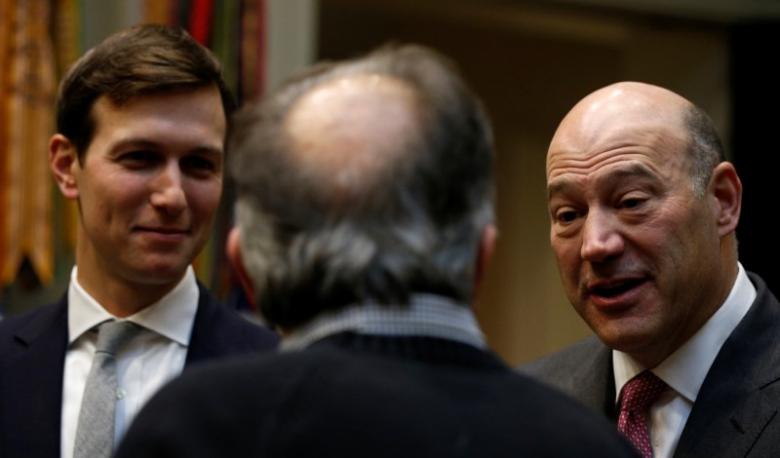By: Alex Edquist

Source: Vic “vvvracer”
When the Mega Millions jackpot exceeded half a billion dollars, my family bought tickets. We didn’t expect to win—the odds of winning the Mega Millions jackpot is about one in 259 million—but it was fun to sit around the dinner table and talk about what we would do with the money. And alright, maybe we did have some hope: perhaps the Georgia Lottery got to us with all those “Today could be the day” advertisements.
The jackpot ended up at $648 million before it was won (narrowly missing the record of $656 million). A Georgian woman, Ida Curry from Stone Mountain, was one of the two lucky winners. It is not surprising that Georgia sold one of the winning tickets: Georgia ranks number one on Bloomberg’s Sucker Index, which is measured by dividing the state’s profits from the lottery by its residents’ income. Georgia sells the fifth-most lottery tickets of any state, and its residents spend one percent of their incomes on lottery tickets, the second-highest proportion of any state.
We at the University of Georgia are quite happy that Georgia’s lottery sales are so high. The Georgia Lottery benefits educational programs, most notably the HOPE Scholarship. Ninety-seven percent of incoming in-state freshmen at UGA and 66 percent of all undergraduates are on HOPE. Last year, the lottery provided $461.7 million for HOPE students, which was 13 percent of its total revenue. So even though my family didn’t win the Mega Millions, at least we were supporting HOPE, which funds both my sister and me here at UGA.
Using the lottery as the means to fund HOPE and other programs has come under criticism for benefitting the richer and better-educated at the expense of the poorer and less-educated. The lottery is essentially a tax on the mathematically-illiterate: the expected payout of a $1 ticket in Georgia is only $0.63, which means that lottery players will lose $0.37 on average for each dollar they spend. (The exception is the recent Mega Millions because the jackpot was so outsized that the expected payout might have been more than the ticket price.)
The least affluent are the least likely to realize this: thirty-eight percent of those with incomes under $25,000 said that winning the lottery was the most practical way for them to accumulate wealth, compared to 21 percent of the general population. According to the same survey, 30 percent of those without a high school degree said that winning the lottery was an important wealth-building strategy, compared to 8 percent of those with college degrees. Poorer people are more likely to play the lottery, and tickets also represent larger percentages of their incomes. People whose incomes are under $12,400 spend five percent of their income on lottery tickets.
For this reason, the lottery is often called a regressive tax. Even though it is optional to play, and therefore not truly a tax, it provides funds for state programs, and poorer people pay a higher percentage of their income towards it than richer people do. And while HOPE is open to Georgia students of all socioeconomic levels, much of the scholarship money goes to middle- and upper-class students. So the lottery works as an abstract redistribution program, but instead of transferring funds from the richer to the poorer as most programs do, this one transfers funds from the poorer to the richer in aggregate.
The regressive nature of the lottery seems especially problematic considering the nature of the overall economy. The gains from the economic recovery have been extremely uneven; 95 percent of income gains after the recession have gone to the wealthiest one percent of Americans. Leaders ranging from President Obama to Pope Francis have recently decried economic inequality and pushed for more progressive policies. Lotteries are probably not included in those policies.
But it is difficult to condemn Georgia’s lotteries for widening economic inequality. Inequality of opportunity is possibly more worrisome than inequality of income, and Southern states like Georgia have very high levels of the former. Atlanta has the fifth-worst upward mobility of the United States’ 100 largest cities: people born into the bottom 20 percent of income distribution in Atlanta have only a four percent chance of entering the top 20 percent of income distribution. Access to quality education is one of the most important methods to reduce inequality of opportunity, especially access to preschools and higher education. And those two are what the majority of Georgia lottery profits go to, through the HOPE Scholarship and Pre-K programs.
These programs have been successful and politically popular, despite criticisms of lottery funding. The HOPE Scholarship has improved Georgia colleges and access to higher education; the rise of both the University of Georgia and Georgia Tech into the top twenty public colleges has been partially attributed to HOPE (which increased the SAT scores of students attending Georgia colleges by 40 points and tripled the proportion of high-scoring Georgia students attending college in-state), and increased the numbers of both white and black students attending college, and the HOPE effect on black students was greater than on white students. University pre-K programs improve the test-scores and on-grade retention of children who participate in them, especially poor, rural children. Another point in Georgia’s favor is that the programs its lottery funds are intended to supplement state education budgets, unlike other states where lottery revenues supplant state funds for education.
It’s not likely these programs would exist without lottery funding. School districts across Georgia are facing budget shortfalls that are forcing them to cut school days and teachers. State funding for the University System of Georgia has fallen every year since 2009 both in total ($2.3 billion in 2009 to $1.74 billion in 2012) and per enrolled student ($8,191 per student in 2009 to $5,505 per student in 2012). Under current conditions, it seems impossible that the University System of Georgia could provide HOPE Scholarships and that school districts could provide universal preschool without the lottery.
There seem to be no good replacements for lottery funding, either. Replacing the lottery—an optional “tax”—with a mandatory tax would be politically unfeasible. And the lottery represents an opportunity for the state to capitalize on gambling revenue that it might not otherwise be able to collect, as most gambling is illegal in Georgia. Even if lottery players spent all the money they would have playing the lottery on other goods upon which Georgia could collect a sales tax, an unlikely occurrence at best, the four percent sales tax the state collects pales in comparison to the 25.8 percent of lottery revenue that currently goes to education.
A program that relies on the least-educated to fund the education of the state may initially seem like a less than ideal policy. However, both HOPE and universal preschool have proven to be both successful and popular. If they are to be funded, as most would agree they should, an optional form of cheap entertainment is not such a bad way to do it. The lottery is not exactly a principled, moralistic policy, but it is a practical one. So play on, Georgia. Today is probably not the day, but that’s okay.

